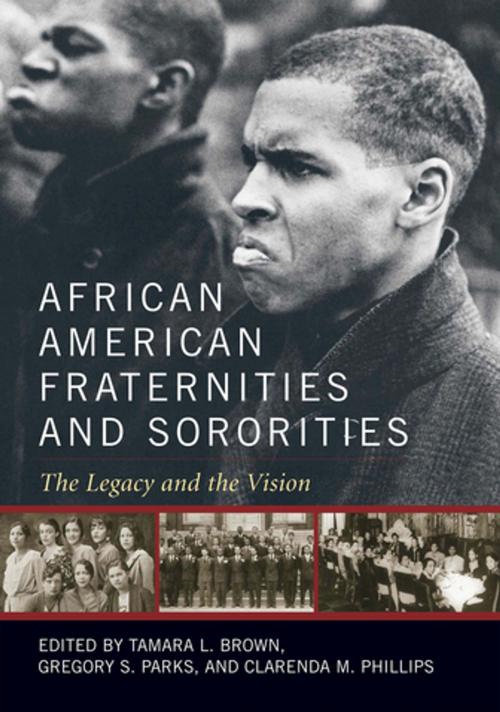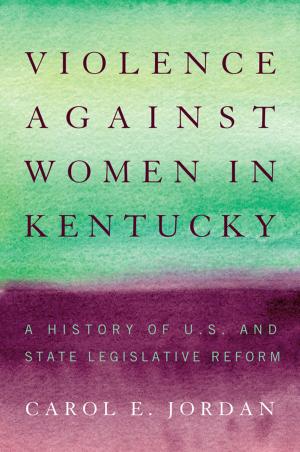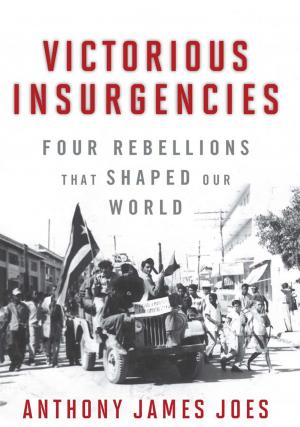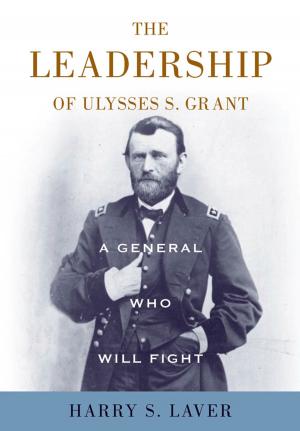African American Fraternities and Sororities
The Legacy and the Vision
Nonfiction, Reference & Language, Education & Teaching, Higher Education, Social & Cultural Studies, Social Science, Cultural Studies, African-American Studies| Author: | ISBN: | 9780813138220 | |
| Publisher: | The University Press of Kentucky | Publication: | March 11, 2005 |
| Imprint: | The University Press of Kentucky | Language: | English |
| Author: | |
| ISBN: | 9780813138220 |
| Publisher: | The University Press of Kentucky |
| Publication: | March 11, 2005 |
| Imprint: | The University Press of Kentucky |
| Language: | English |
African American Fraternities and Sororities: The Legacy and the Vision explores the rich past and bright future of the nine Black Greek-Letter organizations that make up the National Pan-Hellenic Council. In the long tradition of African American benevolent and secret societies, intercollegiate African American fraternities and sororities have strong traditions of fostering brotherhood and sisterhood among their members, exerting considerable influence in the African American community, and being on the forefront of civic action, community service, and philanthropy. Dr. Martin Luther King Jr., Toni Morrison, Arthur Ashe, Carol Moseley Braun, Bill Cosby, Sarah Vaughan, George Washington Carver, Hattie McDaniel, and Bobby Rush are among the many trailblazing members of these organizations. The rolls of African American fraternities and sororities serve as a veritable who's who among African American leadership in the United States and abroad. African American Fraternities and Sororities places the history of these organizations in context, linking them to other movements and organizations that predated them and tying their history to one of the most important eras of United States history -- the Civil Rights struggle. African American Fraternities and Sororities explores various cultural aspects of these organizations such as auxilliary groups, branding, calls, stepping, and the unique role of African American sororities. It also explores such contemporary issues as sexual aggression and alcohol use, college adjustment, and pledging, and provides a critique of Spike Lee's film School Daze, the only major motion picture to portray African American fraternities and sororities as a central theme. The year 2006 will mark the centennial anniversary of the intercollegiate African American fraternity and sorority movement. Yet, to date, little scholarly attention has been paid to these organizations and the men and women who founded and perpetuated them. African American Fraternities and Sororities reveals the vital social and political functions of these organizations and places them within the history of not only the African American community but the nation as a whole.
African American Fraternities and Sororities: The Legacy and the Vision explores the rich past and bright future of the nine Black Greek-Letter organizations that make up the National Pan-Hellenic Council. In the long tradition of African American benevolent and secret societies, intercollegiate African American fraternities and sororities have strong traditions of fostering brotherhood and sisterhood among their members, exerting considerable influence in the African American community, and being on the forefront of civic action, community service, and philanthropy. Dr. Martin Luther King Jr., Toni Morrison, Arthur Ashe, Carol Moseley Braun, Bill Cosby, Sarah Vaughan, George Washington Carver, Hattie McDaniel, and Bobby Rush are among the many trailblazing members of these organizations. The rolls of African American fraternities and sororities serve as a veritable who's who among African American leadership in the United States and abroad. African American Fraternities and Sororities places the history of these organizations in context, linking them to other movements and organizations that predated them and tying their history to one of the most important eras of United States history -- the Civil Rights struggle. African American Fraternities and Sororities explores various cultural aspects of these organizations such as auxilliary groups, branding, calls, stepping, and the unique role of African American sororities. It also explores such contemporary issues as sexual aggression and alcohol use, college adjustment, and pledging, and provides a critique of Spike Lee's film School Daze, the only major motion picture to portray African American fraternities and sororities as a central theme. The year 2006 will mark the centennial anniversary of the intercollegiate African American fraternity and sorority movement. Yet, to date, little scholarly attention has been paid to these organizations and the men and women who founded and perpetuated them. African American Fraternities and Sororities reveals the vital social and political functions of these organizations and places them within the history of not only the African American community but the nation as a whole.















